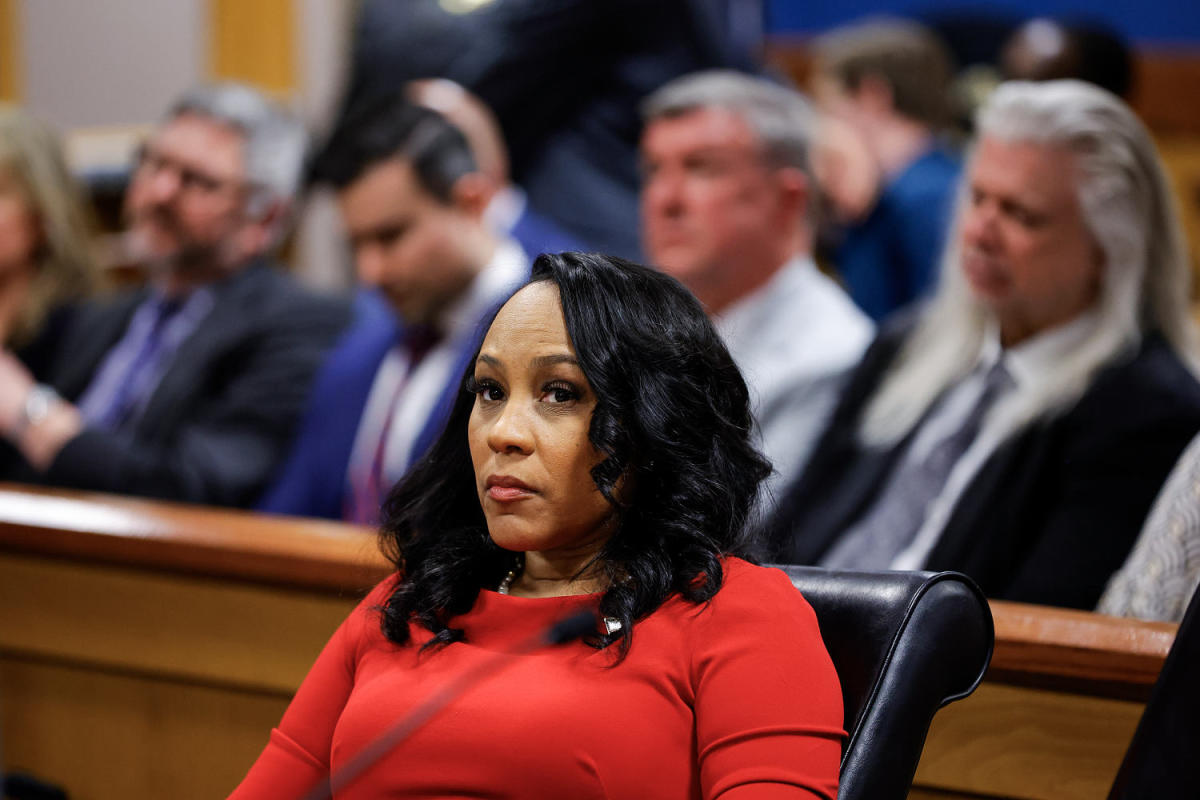ATLANTA — Prosecutors in Georgia have called on a state appeals court to reject President-elect Donald Trump’s bid to dismiss the election interference case against him. They say his arguments are “insufficient” and “should be ignored.”
Fulton County District Attorney Fani Willis’ office is continuing its case against Trump and more than a dozen of his allies, which began in August 2023. Lawyers for Trump argue that the case should be dismissed in light of Trump’s recent election and immunity. of prosecution often imposed on sitting presidents.
Prosecutors disagreed.
Trump “makes no specific request based on reasoned arguments, but expresses his preference that this Court independently conduct a comprehensive and novel legal analysis without guidance from the parties to reach an overall result: the dismissal of all charges against him Willis said. the office said Wednesday in a filing with the Georgia Court of Appeals, which described Trump’s request as “procedurally and legally deficient.”
Trump’s lawyers disputed these characterizations in a subsequent filing Wednesday, saying his request was “intended to alert this Court to a jurisdictional issue and its legal position on how and when to address the issue.”
“Contrary to the State’s response, it does not ‘require’ this Court to do anything,” Trump’s lawyers wrote.
A Trump spokesperson did not immediately respond to a request for comment on the lawsuits.
Trump’s lawyers said in a filing this month that the appeals court should dismiss the 2020 election interference charges because of “the unconstitutionality of his continued indictment and prosecution by the state of Georgia” now that “he is president-elect and will soon become the 47th .” President of the United States.”
They argued that a “sitting president is completely immune from indictment or any criminal trial, state or federal,” and that the appeals court should order the lower court to hear the case “well before President Trump’s inauguration” on Jan. 20 dismiss.
Noting that Trump is not yet president, the district attorney’s office said, “While the courts’ understanding of presidential immunity continues to evolve, there is obviously no ‘president-elect immunity’.”
The U.S. Constitution “places all presidential authority in the sitting president, while a president-elect has none,” according to the filing from Chief Senior Assistant District Attorney Donald Wakeford.
It also pushed back against Trump’s claim that presidents are immune from state prosecution, saying the claim relies mainly on a Justice Department memo and not case law.
“Similarly, appellant notes that states may not ‘obstruct’ or ‘interfere’ with a sitting president’s ability to perform his duties, but fails to explain how this principle practically applies to the present case,” the filing said, citing Trump’s pending appeal. of an order allowing Willis to remain on the case as a prosecutor despite allegations of a conflict of interest.
The prosecutor’s filing also states that Trump “does not specify or articulate how the appeal — or any other aspect of this case — will constitutionally impede or interfere with his duties once he assumes office.”
“In other words, Appellant has not done the work but would very much like this Court to do so,” the filing said.
Wakeford also pushed back against what he described as a “familiar tactic” of Trump’s legal team — the claim that the case is “politically motivated.”
Trumps’ prosecution actually stemmed from his own actions, as alleged in [his] indictment,” Wakeford wrote.
The case is “the result of two separate grand juries and years of investigation, and any suggestion that it was motivated by ‘possible local bias’ remains completely unfounded,” he added.
It is unclear when the appeals court will rule on Trump’s attempt to have the case dismissed.
The court was scheduled to hear arguments on Willis’ disqualification this month but abruptly canceled the hearing without explanation.
Trump and 18 co-defendants were indicted on racketeering charges in August 2023, alleging they conspired to illegally overturn the 2020 election results in the state. Some defendants have pleaded guilty. Trump has pleaded not guilty.
Trump has also denied pleading guilty to charges in New York, where he was convicted in May of 34 felony counts of falsifying company records. The judge in that case recently rejected his attempt to overturn his conviction on the grounds of presidential immunity.
Trump still has a motion pending in the hush money case in New York.
Charlie Gile reported from Atlanta and Dareh Gregorian from New York.
This article was originally published on NBCNews.com
